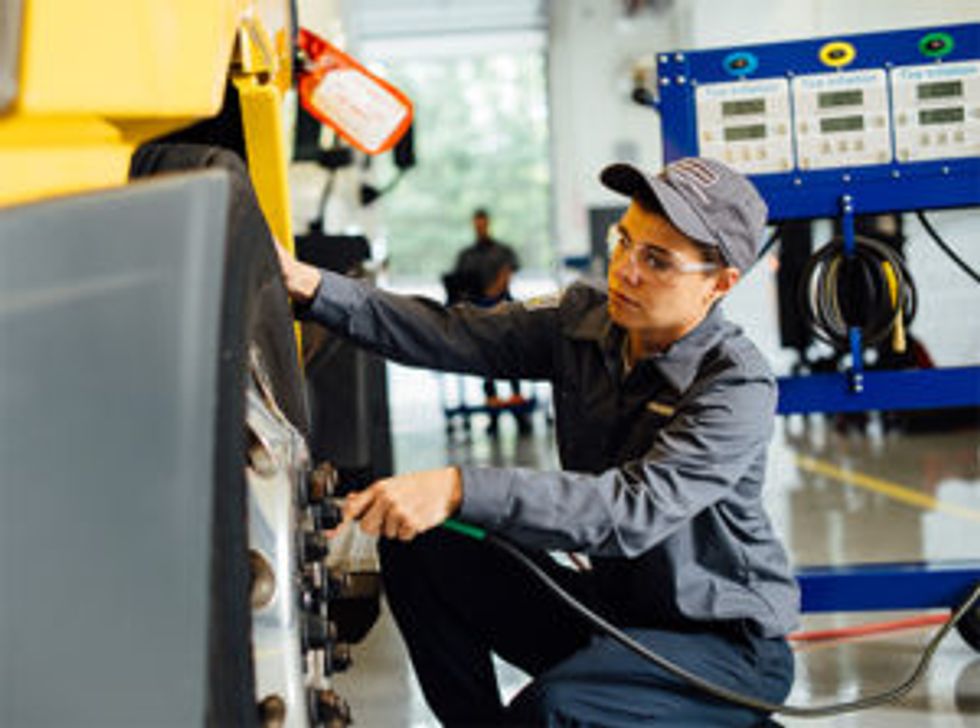
To Maintain Fuel Economy, Maintain Your Truck
Truckers and carriers are always seeking ways to maximize fuel economy, and spec’ing your vehicle properly for the application it will run in 80% of the time is a great way to start. However, once you do so, proper maintenance plays a big role in maintaining that fuel economy.
For vehicles that spend most of their time on the highway, aerodynamics plays an important part in improving fuel economy. It is critical to keeping devices secure and in good condition, repair damage, and maintain proper tire inflation. Tires running just 10 pounds underinflated can impact fuel economy by as much as 1%. Check tire pressures every time you have a unit in the service bay for any type of repair. Inspect tires for irregular wear, which can be caused by misalignment.
A good preventive maintenance program can maintain good engine performance and contribute to fuel economy:
- Use good quality motor oil and filters, and don’t extend oil drain intervals too far.
- Leaking charge air connections can cause power and fuel economy issues.
- Exhaust leaks can impact waste heat recovery and passive and active regenerations.
- Air leaks can cause the air compressor to run all the time.
- Poor battery maintenance can cause the alternator to charge excessively.
- Fuel filter quality and timely replacement are more important than ever with the high injection pressures that are being used today.
- Quality air filters are also important, and changing them out before they exceed restriction levels not only helps fuel economy but prolongs engine life.
- Improper belt tension as well as worn belts can cause components to be overworked or perform poorly.
- Regular greasing of components, such as the brake S-cams, slack adjusters, etc., prevent things such as brakes dragging.
- Proper brake maintenance is also important, since worn brake parts or brakes out of adjustment can cause brakes to drag.
- Proper cooling system maintenance allows the engine to run efficiently.
- Proper clutch adjustment on mechanical linkage and manual transmissions prevents slippage.

This guest blog post was contributed by Mike Hasinec, vice president of maintenance systems & support at Penske Truck Leasing.